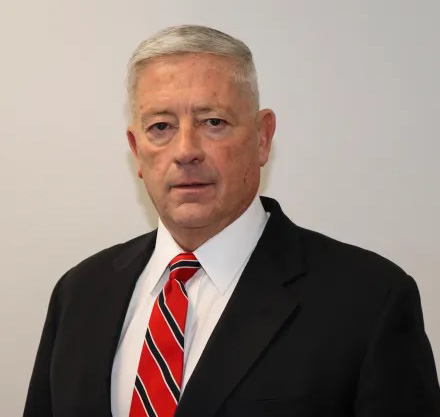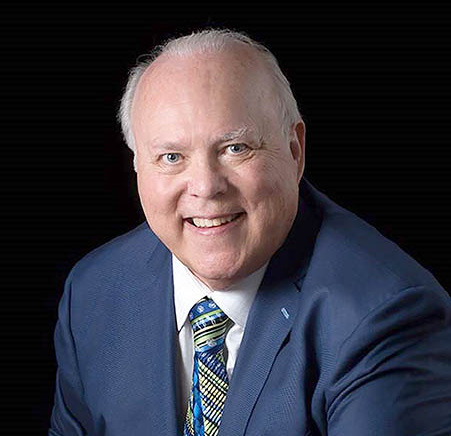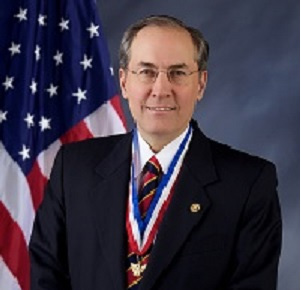[…] council-approved mentor who is a registered Scouter. You may NOT choose your parent or your unit leader. Dr. Sally Ride Supernova Award First-Level Supernova Award for Venturers Complete THREE of the Venturer Nova Awards. (Note: These may be done at any time after becoming a Venturer.) Complete the Venturing Scholarship exploration. (The following requirement was inadvertently left out of the guidebook.) Do ONE of the following: Show that you have had an average grade of B or higher (80 percent or higher) for one term or semester. Show that for one term or semester you have improved your school grades over the previous period. Do TWO of the following: Discuss with your mentor the following situation: Suppose you are writing a research paper and you find a resource in which the author’s words are so perfectly aligned with your perspectives and understanding that you cannot imagine a better way to put it in your paper than to use the author’s own words. How can you handle such a situation while still maintaining scholarly integrity? Discuss with your mentor the following situation: Suppose you are writing a research paper and you find resources with conflicting “facts” and/or conflicting conclusions. What are some viable strategies for resolving these conflicts and deciding which resources are trustworthy? Discuss with your mentor the following situation: Suppose you are writing a research paper and have acquired dozens of resources. How would you keep track of the resources, summarize the salient parts of each resource, and synthesize the collection of resources into a coherent research paper? Get a note from an instructor* of yours that states that during the past term you have demonstrated satisfactory abilities or progress in independently completing scholarly endeavors and proactively seeking help when needed. *If you are home-schooled, you may obtain a note from a counterpart such as your parent. If you are near the end of your current term, you may ask a current instructor. Otherwise, you should ask an instructor from the immediate past term. Do ONE of the following: Show that you have taken part in a scholarly activity (in school or in Scouting) that required teamwork, and discuss with your mentor what you learned about how a team of people can work together effectively, fairly, and efficiently. Find three resources (online, in a library, personal interview, etc.) of expert advice on successful teamwork strategies and discuss with your mentor what you learned about how a team of people can work together effectively, fairly, and efficiently. Do ONE of the following: Write an argument of approximately 500 words that defends or opposes the principle that, “Students should be obligated to report instances of cheating by others.” Discuss this with your mentor. With your crews, another crew, school class, or another peer group, conduct an ethical controversy discussion that addresses the question, “Should students be obligated to report instances of cheating by others?” Using the guidelines found in the “Venturing STEM Explorations” chapter, complete STEM explorations for four of the topics listed above. (Note: These may be completed at any time after becoming a Venturer.) Complete TWO Supernova activity topics, one each in two different STEM areas. Participate in a local, state, or national science fair or mathematics competition OR in any equally challenging STEM-oriented competition or workshop approved by your mentor. An example of this would be an X-Prize type competition. Do ONE of the following: Spend at least one day “shadowing” a local scientist or engineer. After your visit, discuss with your mentor your experience and what you learned about STEM careers. Learn about a career that is heavily involved with STEM. Make a presentation to your mentor about what you learned. Working with your mentor, organize and present a Nova award or other STEM-related program at a Cub Scout den or pack meeting. Be sure to receive permission from the appropriate unit leader, and plan accordingly. If a Cub Scout den or pack is not available, your presentation may be given to another youth group. Review the scientific method (you may know this as the scientific process) and note how scientists establish hypotheses, theories, and laws. Compare how the establishment of “facts” or “rules” using the scientific method differs from the establishment of “facts” or “rules” in other environments, such as legal, cultural, religious, military, mathematical, or social environments. Then do each of the following: Choose a current subject with at least two competing theories on the subject and learn as much as possible about each theory. Analyze the competing theories, decide which one is most convincing to you, and explain why to your mentor. Make a presentation to your mentor that describes the controversy, the competing theories, and your conclusions about how the scientific method can or cannot contribute to the resolution of the controversy. Submit an application to the district or council Nova or advancement committee for approval. Wright Brothers Supernova Award OPTION 1: Second-Level Supernova Award for Venturers and Sea Scouts For those who earned the Dr. Sally Ride Supernova Award as a registered Venturer or Sea Scout. Earn the Dr. Sally Ride Supernova Award while a registered Venturer. Complete ONE additional Venturer Nova award for a total of four. (Note: This may be done at any time after becoming a Venturer.) Using the guidelines found in the “Venturing STEM Explorations” chapter, complete FOUR of the topics listed above. The four topics must be different from those completed while working on the Dr. Sally Ride Supernova Award, for a total of eight different topics. (Note: These awards may be earned at any time after becoming a Venturer.) Complete TWO additional Supernova activity topics, one each in the two STEM areas not completed for the Dr. Sally Ride Supernova Award. (Note: The intent is that upon completion of the Wright Brothers Supernova Award, the Venturer will have completed one Supernova activity topic in each of the four STEM areas.) Participate in a local, state, or national science fair or mathematics competition OR any other equally challenging STEM-oriented competition or workshop approved by your mentor. An example of this would be an X-Prize type competition. (Note: The intent is that upon completion of the Wright Brothers Supernova Award, the Venturer will have participated in two such events.) Working with your mentor, organize and present a Nova awards or other STEM-related program at a Cub Scout den or pack meeting. Be sure to receive permission from the appropriate unit leader. If a Cub Scout den or pack is not available, your presentation may be given to another group. (Note: The intent is that upon completion of the Wright Brothers Supernova Award, the Venturer will have completed two such presentations.) Research a scientific, technical, engineering, or mathematical breakthrough or invention of the past 100 years that has affected our society in a meaningful way. Develop your hypothesis on how this invention might further affect our society during your lifetime. Present either a 30-minute oral report or a 1,500-word written report to your mentor. Submit an application to the district or council Nova or advancement committee for approval. OPTION 2: Second-Level Supernova Award for Venturers and Sea Scouts For those who earned the Dr. Bernard Harris Supernova Award as a registered Boy Scout. Earn the Dr. Bernard Harris Supernova Award while a registered Boy Scout. Complete ONE additional Venturer Nova award for a total of four. (Note: This may be done at any time after becoming a Venturer.) The Venturer Nova award completed should be different from the Boy Scout Nova awards previously completed. Using the guidelines found in the “Venturing STEM Explorations” chapter, complete FOUR of the topics listed above. The four topics must be different from those completed while working on the Dr. Bernard Harris Supernova Award, for a total of eight different topics. (Note: These awards may be earned at any time after becoming a Venturer.) Additional merit badges earned while a Boy Scout may not be used in lieu of the STEM explorations required for this award. Complete TWO additional Supernova activity topics, one each in the two STEM areas not completed for the Harris Supernova Award. (Note: The intent is that upon completion of the Wright Brothers Supernova Award, the Venturer will have completed one Supernova activity topic in each of the four STEM areas.) Participate in a local, state, or national science fair or mathematics competition OR any other equally challenging STEM-oriented competition or workshop approved by your mentor. An example of this would be an X-Prize type competition. (Note: The intent is that, upon completion of the Wright Brothers Supernova Award, the Venturer will have participated in two such events.) Working with your mentor, organize and present a Nova award or other STEM-related program to a Cub Scout den or pack meeting. Be sure to receive permission from the appropriate unit leader. If a Cub Scout den or pack is not available, your presentation may be given to another youth group. (Note: The intent is that upon completion of the Wright Brothers Supernova award the Venturer will have completed two such presentations.) Research a scientific, technical, engineering, or mathematical breakthrough or invention of the past 100 years that has affected our society in a meaningful way. Develop your hypothesis on how this invention might further affect our society during your lifetime. Present either a 30-minute oral report or a 1,500-word written report to your mentor. Submit an application to the district or council Nova or advancement committee for approval. Dr. Albert Einstein Supernova Award NOTE: A youth must be a registered Venturer or Sea Scout when this work is completed in order to this award. Third-Level Supernova Award for Venturers and Sea Scouts Earn either the Thomas Edison Supernova Award while a registered Boy Scout or the Wright Brothers Supernova Award while a registered Venturer. Complete FOUR additional Supernova activity topics, one in each of the four different STEM areas. (Note: The intent is that upon completion of the Dr. Albert Einstein Supernova Award the Venturer will have completed two Supernova activity topics in each of the four STEM areas for a total of eight.) Create and propose a new Nova awards topic for any program (Cub Scout, Webelos, Boy Scouts, or Venturing) comparable to the existing Nova awards topics at that program level. Prepare a written outline for this proposed Nova awards topic and submit it to your mentor. With guidance from your mentor, select an area of current STEM-related concern and develop a research project or experiment related to that area. Prepare a one-page written proposal detailing your scientific hypothesis or engineering objective and your proposed experimental methods, which must be approved by the National STEM in Scouting Committee before you begin work (einstein@scouting.org). This research project or experiment should be challenging and should require a significant investment of time and effort on your part. (A guideline would be approximately 100 hours.) If your mentor is not a specialist in the area of your project or experiment, he or she will solicit assistance from a specialist who to serve as a STEM consultant. Execute the project or experiment. Prepare a complete and well-documented written report AND an oral presentation. Present both to your mentor and your local council STEM in Scouting committee. Submit an application to the national STEM in Scouting committee for approval. A guide to earning and mentoring the Dr Albert Einstein Supernova Award is available (updated 2020 Feb 05). Supernova Activity Topics Each STEM field—science, technology, engineering, mathematics—offers a choice of three Supernova activity topics. These are two-part, hands-on, high-level activities created to challenge you and help you continue along your STEM journey to excellence. Part 1 involves research, preparation, set up, coordination, and/or organization. Part 2 includes elements such as analysis, reflection, experimentation, design, or invention, and culminates in a report created by you. Click here to get started. STEM Exploration Requirements Science Technology Engineering Mathematics –> The following requirements apply to any specific STEM field of interest chosen by a Venturer or Sea Scout in the course of completing a Nova or Supernova […]


